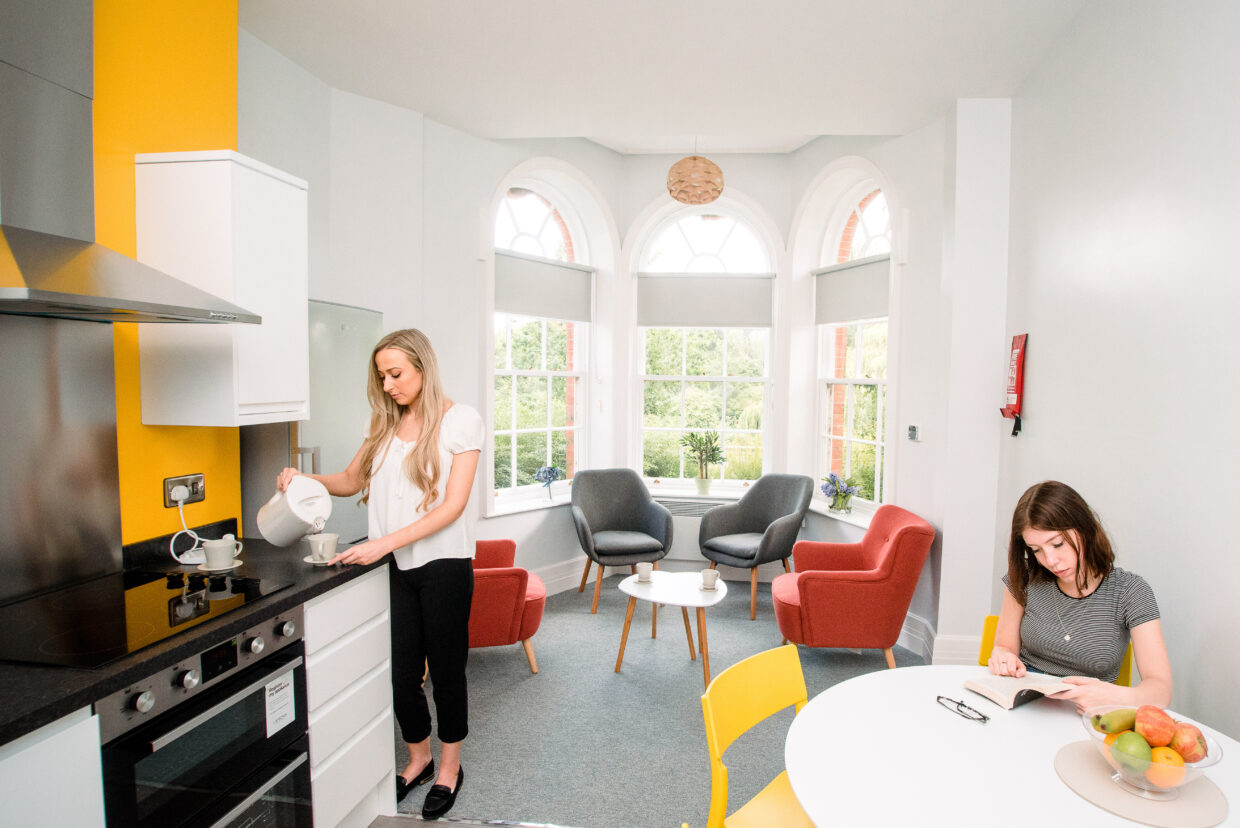When researching universities, one thing students often forget to look out for is study spaces. Where on campus is free for you to use when you just want to knuckle down and work on a project?
Similarly, when looking at accommodation options – what is the study space like in your room? Is the desk big enough for your computer etc?
Now, more than ever, having an appropriate study space is important. With more and more students choosing to study from home, and some campus spaces being closed – creating an at-home study space is vital.
We’ve compiled some things for you to think about.
Think about the room – where do you work best?
Some people like to come out of their bedroom and sit in a space while they study so they link that space with concentration. Others like to be in their bedroom because they know they won’t be disturbed. Thinking about the room you chose to study in will help you identify what you need from a study environment.
Location – sitting down, laying down, stood up, walking?
Everyone works differently – I worked with colleagues who doodle and scribble their ideas down, then physically move around the post it notes to plan their work. For them – they needed big whiteboards or corkboards to be able to plan. They almost always stood up and wandered while planning.
My housemate loved working from bed – it was where she was comfiest – and she hated leaving her bed. So why bother? She would have her waterbottle on her bedside table, computer plugged in, and would sit and work away from her bed.
If you’re active, it doesn’t mean studying has to wait until you get home. Does your lecturer, or a researcher have a podcast you can listen to while you’re in the gym? If your phone has speech recognition, try talking to your phone as a way of writing a paragraph as you’re out on a stroll. Thinking outside the box can help you identify where you work best.
Resources – what do you need to study?
Thinking about a study session – what do you need to have to hand? For me, it was a laptop & charger, a notebook, pen, highlighter, cup of tea, snacks, my headphones and my phone. Try to have a space that has enough plugs, enough room for your books, has everything you need in reaching distance. If you need to stop and start your studying to get those little bits and bobs, it will interrupt your flow.
Think about noise.
Some people work best with music on, others need complete silence. When I got into my MA, I discovered I work best with some slight background noise, so I would pop an old show on (one I’d seen before so I didn’t get distracted), just so there was talking in the background. It acted like white noise and helped me focus. However you work best, find an environment that supports you. We know silence may be hard to find when you’re at home with family – but could you wake up early to fit in a study session when everyone else is still asleep? Could you go for a walk and speak-type into your phone rather than typing in the house?
Think about comfort.
Studying and comfort may not always go hand in hand, but the more comfortable you are, the more time you’re likely to spend in your study space. Is it warm enough? Do you have access to snacks or drinks when you need them? Is your chair comfy? Are the lights going to hurt your eyes, or is it so dim you’re straining? Have a blanket nearby to warm you up!
We know not everyone has a desk, or a study space made up. When I used my bedroom to study, I made sure to make my bed before I started studying. That way I knew I wasn’t here to chill out, I was here to do work. Some people have a hoodie that is their ‘study hoodie’ – so when they put it on, they know its time to focus. Some people use a specific pen to study – as colours sometimes help people remember. Whatever you need to do to study, try to make those little steps to make it more comfortable and enjoyable. Then you’ll want to do more!

